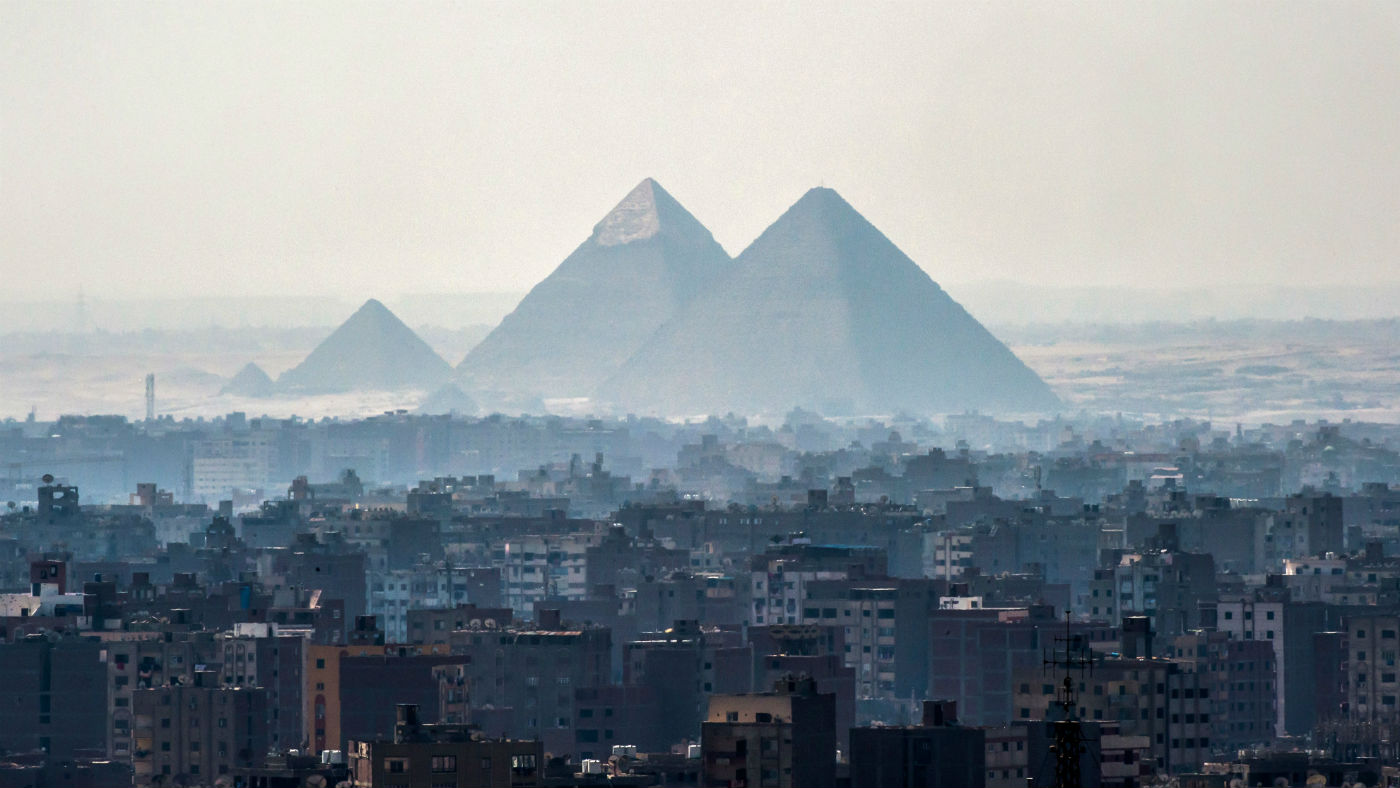Egypt to ban ‘fake’ weather reports
Move comes amid growing crackdown on dissenting media

A free daily email with the biggest news stories of the day – and the best features from TheWeek.com
You are now subscribed
Your newsletter sign-up was successful
Egyptian authorities have announced a crackdown on “fake” weather reports, amid a wider suppression of media critical of the regime.
The Egyptian Meteorological Association is preparing a draft law banning unauthorised forecasts, which will punish anyone “talking about meteorology, or anyone using a weather forecasting device without our consent, or anyone who raises confusion about the weather”, the EMA Chairman, Dr Agmed Abdel-Al said in a television interview.
While false reports about the weather are rare, “weather reports have occasionally become political”, says The Guardian, citing a 2015 claim by Egypt’s interior ministry that flooding in the coastal city of Alexandria was caused not by infrastructural failings, but by members of the banned Muslim Brotherhood blocking drains with cement.
The Week
Escape your echo chamber. Get the facts behind the news, plus analysis from multiple perspectives.

Sign up for The Week's Free Newsletters
From our morning news briefing to a weekly Good News Newsletter, get the best of The Week delivered directly to your inbox.
From our morning news briefing to a weekly Good News Newsletter, get the best of The Week delivered directly to your inbox.
Timothy E. Kaldas, of the Tahrir Institute for Middle East Policy think tank, told the paper: “Regardless of whether or not this proposed law affects anything, it reflects the government’s view that it has a right to regulate any and all information, even information that should be a product of apolitical scientific analysis.”
President Abdul Fattah al-Sisi’s increasingly authoritarian regime has launched a crackdown on what it calls “fake news” in recent years.
In March, a hotline was set up for citizens to report incidents of fake news in the media, while a law passed last year gave authorities the right to shut down or block any websites that threaten the Egyptian economy or national security. At least 497 websites have been blocked over the past 12 months, according to the Association of Freedom of Thought and Expression.
A free daily email with the biggest news stories of the day – and the best features from TheWeek.com
-
 Mixing up mixology: The year ahead in cocktail and bar trends
Mixing up mixology: The year ahead in cocktail and bar trendsthe week recommends It’s hojicha vs. matcha, plus a whole lot more
-
 Labor secretary’s husband barred amid assault probe
Labor secretary’s husband barred amid assault probeSpeed Read Shawn DeRemer, the husband of Labor Secretary Lori Chavez-DeRemer, has been accused of sexual assault
-
 Trump touts pledges at 1st Board of Peace meeting
Trump touts pledges at 1st Board of Peace meetingSpeed Read At the inaugural meeting, the president announced nine countries have agreed to pledge a combined $7 billion for a Gaza relief package
-
 Epstein files topple law CEO, roil UK government
Epstein files topple law CEO, roil UK governmentSpeed Read Peter Mandelson, Britain’s former ambassador to the US, is caught up in the scandal
-
 Iran and US prepare to meet after skirmishes
Iran and US prepare to meet after skirmishesSpeed Read The incident comes amid heightened tensions in the Middle East
-
 Israel retrieves final hostage’s body from Gaza
Israel retrieves final hostage’s body from GazaSpeed Read The 24-year-old police officer was killed during the initial Hamas attack
-
 China’s Xi targets top general in growing purge
China’s Xi targets top general in growing purgeSpeed Read Zhang Youxia is being investigated over ‘grave violations’ of the law
-
 Panama and Canada are negotiating over a crucial copper mine
Panama and Canada are negotiating over a crucial copper mineIn the Spotlight Panama is set to make a final decision on the mine this summer
-
 Why Greenland’s natural resources are nearly impossible to mine
Why Greenland’s natural resources are nearly impossible to mineThe Explainer The country’s natural landscape makes the task extremely difficult
-
 Iran cuts internet as protests escalate
Iran cuts internet as protests escalateSpeed Reada Government buildings across the country have been set on fire
-
 US nabs ‘shadow’ tanker claimed by Russia
US nabs ‘shadow’ tanker claimed by RussiaSpeed Read The ship was one of two vessels seized by the US military